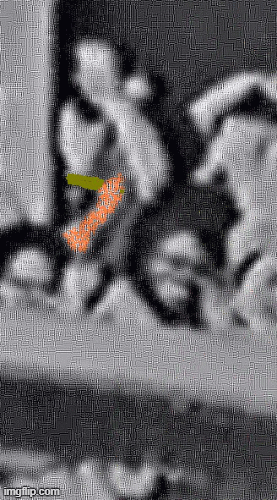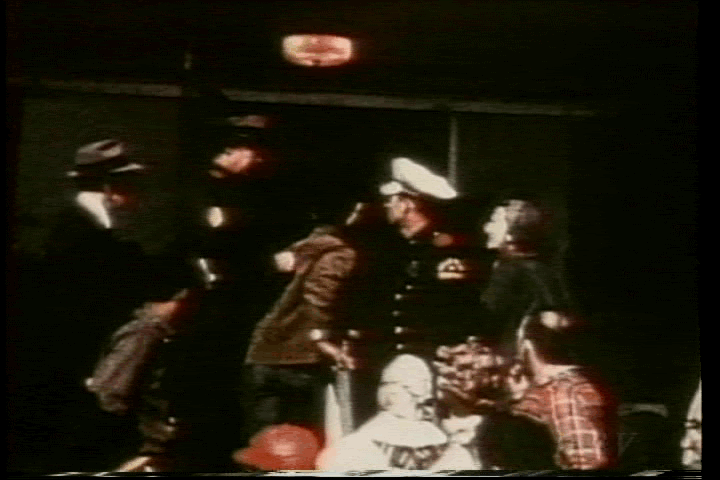Well!
Postal Inspector Harry D. Holmes clearly recalls that Mr Oswald talked in custody of a front entrance encounter involving an officer and Mr Truly. Mr Holmes also has a vague recollection that a coke somehow featured in Mr Oswald's claim:
as he went out the front, it seems as though he did have a coke with him, or he stopped at the coke machine, or somebody else was trying to get a coke, but there was a coke involved. He mentioned something about a coke. But a police officer asked him who he was, and just as he started to identify himself, his superintendent came up and said, "He is one of our men." And the policeman said, "Well, you step aside for a little bit." Then another man rushed in past him as he started out the door, in this vestibule part of it, and flashed some kind of credential and he said, "Where is your telephone, where is your telephone, and said I am so and so, where is your telephone." And he said, "I didn't look at the credential. I don't know who he said he was, and I just pointed to the phone and said, 'there it is,' and went on out the door."OK.
Something about a coke.Now, there is another curious detail in here: Mr Oswald, we are supposed to believe, having been told by the officer NOT to leave but to "step aside for a little bit" DISREGARDED this direction and "went on out the door" anyway-----------------without the officer noticing or doing anything to stop him.
This seems most improbable, as
a) Mr Oswald would hardly volunteer to Captain Fritz that he performed such a blatant & suspicious act of disobedience towards a police officer
b) the officer, being at the door, would hardly have been so negligent as to let him pass having just told him to "step aside for a little bit".
**
I would like to offer a scenario that might make sense of Mr Holmes' somewhat muddy recollection of what Mr Oswald said.
This scenario is still within the overall scenario I have been outlining in the present thread.
**
1. Mr Oswald
buys a coke before the motorcade and, having come back down to one to eat his lunch, goes outside to watch the P. Parade
with the coke. We may even have photographic evidence (thanks to Mr Cronkite) of him actually drinking from the bottle at the very time of the shooting:

2. Right after the shots ring out, Mr Shelley dashes down and off the steps to see what's happened out in the street; Mr Oswald follows him off the steps-------i.e. goes out with Mr Shelley in front. However! Before leaving the steps, Mr Oswald has the presence of mind to do one simple thing:
he puts his unfinished coke down, safely over by the inside west wall of the entrance.
3. Several minutes later, and Mr Oswald------------who has meantime re-entered the building with Mr Shelley by the west door and spent some time inside----------returns to the front door. An officer stops him and asks him where he's going. Mr Oswald points down the steps and says, "I left my coke just down there. I left it there when the shooting happened. I want to get it." Mr Truly vouches for Mr Oswald and the officer agrees to let him pass:
"OK, but stay in the vicinity."4. Mr Oswald does NOT (for whatever reason) stay in the vicinity. It is THIS fact that will later strike Mr Truly as odd-------and
make him report Mr Oswald's absence to Captain Fritz.
**
BTW!
Anyone skeptical that an employee would be allowed outside on the understanding that they not leave the vicinity should look at the Martin film and explain to us what Mr Bonnie Ray Williams is doing out there on the steps!

Yes, that's the same Mr Williams who will tell the WC this:
Mr. BALL. Did you go out of the building shortly after you came downstairs?
Mr. WILLIAMS. They wouldn't let anybody out of the building.Mr Williams, one can only presume, was allowed outside on strict condition that he not go far. Just (as I am suggesting) like Mr Oswald.
